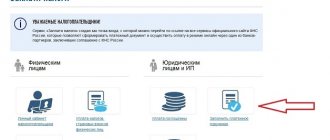Responsibility for non-payment of taxes is the consequences provided by law for persons who have violated the established rules for their calculation and payment. Responsibility can be either material, administrative or criminal. The article discusses general issues: types of offenses and crimes, elements of acts, statute of limitations.
The current Russian legislation provides for quite serious liability for tax evasion. A tax offense involves both administrative and criminal liability, which means that the obligation to transfer fees must be treated very carefully, since administrative liability for non-payment of taxes by an individual or organization is imposed even in the case of negligence or negligence, ignorance of the law.
Types of tax violations
| Violation | Article of the Tax Code of the Russian Federation | Fine |
| Procedures and rules for registration with the regulatory authority | Art. 116 | 10,000 rubles or 10% of income (at least 40,000 rubles) |
| The procedure, rules and method of submitting reports and other documents | Art. 119, 119.1, 119.2 | From 200 rubles to 5% of the amount of the fiscal payment, but not less than 1000 rubles. (depending on the type of document) |
| Incorrect information about the size of the tax base | Art. 120 | 10,000–40,000 rub. |
| Non-payment or incomplete payment of mandatory fees | Art. 122, 123 | 20–40% of the amount of the fiscal payment |
| Failure to comply with the procedure for using property that is pledged (as an interim measure) or under arrest | Art. 125 | 30,000 rub. |
| Failure to provide information | Art. 126 | From 200 rub. per document up to 1000 rub. for every month of delay |
The Code of Administrative Offenses of the Russian Federation establishes bringing a taxpayer to administrative liability for such a violation as non-payment of taxes according to the principles and norms set out in Chapter 15 of the Code of Administrative Offences: it lists violations in the field of taxation, finance and fees. Most of the articles refer to large market participants.
For such an offense as non-payment of taxes by an individual, they are held accountable under the articles of the Tax Code, if there is no corpus delicti under Art. 198 of the Criminal Code of the Russian Federation.
Administrative responsibility
If a fiscal debt arises as a result of a gross (the criteria for grossness are listed in clause 1 of the note to Article 15.11 of the Code of Administrative Offenses of the Russian Federation) violation of accounting requirements, including relevant reporting. The director or accountant guilty of this will be subject to an administrative fine in the amount of 5,000 to 10,000 rubles.
A repeated violation (within 12 months from the date of punishment for the first) will result in a fine of 10,000 to 20,000 rubles. or disqualification for 12-24 months.
Will be exempt from these administrative penalties in the following cases:
- filing an updated tax return and paying on its basis the underpaid amount of the mandatory payment in compliance with the conditions, in accordance with Art. 81 Tax Code of the Russian Federation;
- correction of errors in accordance with the established procedure (including provision of revised financial statements before their approval).
The statute of limitations for such violations is two years from the date of their commission.
Types of liability
When choosing measures to influence a tax defaulter, the court considers the circumstances of a particular situation and the amount of damage and, on the basis of this, determines what punishment to impose on an individual for non-payment of taxes. For such a violation they are subject to the following types of liability:
- material. In accordance with Art. 75 of the Tax Code of the Russian Federation, penalties for late fulfillment of the obligation to pay the fee are charged regardless of the application of other types of liability;
- administrative - in accordance with Art. 122 Tax Code of the Russian Federation;
- criminal - under Art. 198 - 199 of the Criminal Code of the Russian Federation.
What taxes must a legal entity pay?
This is not considered a living person, but an organization that owns separate property, an economic balance sheet, and a charter. It is also characteristic that the protection of interests is carried out without outside help. The law provides for a fine for non-payment of tax by a legal entity, but before understanding the topic, it is worth remembering what mandatory payments we are talking about.
Important! If you yourself are dealing with your own case related to non-payment of taxes by a legal entity, then you should remember that:
|
To get the most detailed advice on your issue, you just need to follow any of the suggested options:
|
The most important government fees from enterprises include:
- income tax - based on the residence principle. The object of taxation in this case is the profit of the enterprise. This refers to income minus expenses. A period of 12 months is taken into account, the calculation is carried out incrementally;
- for property is a mandatory payment, the amount of which depends on what property and in what size is on the company’s balance sheet. Funds in accounts are not taken into account. The same applies to property exempt from taxation. The final amount of the regular payment is calculated using the following formula: the value of the taxable property at the beginning of each month is added up, after which the result is divided by their number;
- value added tax is an indirect multi-stage tax, which is mandatory for payment at all stages of production/sale of products;
- on transactions with securities - this tax is paid only upon registration of the prospectus for the issue of securities. The object of taxation is the nominal amount for which securities are issued.
Criminal liability for non-payment of taxes by a legal entity is provided for in Article 199 of the Criminal Code of the Russian Federation. Practice shows that organizations are less likely to evade compliance with the law, but this does not mean that they do not need the help of a lawyer.
Compositions of offenses
If the Tax Code of the Russian Federation indicates non-payment of tax due to an understatement of the base for calculations (accidentally or intentionally) or other unlawful actions as an objective aspect of the violation, then the Criminal Code of the Russian Federation focuses on the fact that the crime is committed intentionally. This is logical: according to the meaning of the legislation, criminal offenses are the most dangerous for society and the punishment for them is more severe. Tax evasion is expressed in deliberate acts aimed at reducing the amount of taxes and resulting in their non-receipt into the treasury, according to Resolution of the Plenum of the Supreme Court of the Russian Federation No. 64. Tax evasion by individuals constitutes a crime only if committed on a large or especially large scale , according to Art. 198 - 199 of the Criminal Code of the Russian Federation. The concept of large and especially large size is given in the notes to the articles.
How to avoid liability for tax evasion by an organization?
If, nevertheless, a criminal case has been initiated against the head of the organization due to non-payment of taxes and fees, then in this case there are the following types of exemption from criminal liability:
- Elimination of debts on taxes and fees. The legislation directly provides for exemption from criminal liability in the event of initial prosecution and subject to full payment of the amount of money due to the state, including all penalties and fines. At the same time, it should be noted that these cases are initiated on the basis of a decision of the tax authority on additional tax assessment or bringing to tax liability, the decision data reflects the deadline for executing the decision, which is why it is possible to completely avoid initiating a case by fulfilling the tax burden within the period established by this decision.
- Expiration of the statute of limitations for criminal prosecution . In this case, it should be taken into account that the manager can be held accountable if he is not brought to criminal responsibility within two years from the date of the crime. Separately, it is worth noting that if this crime is committed on a particularly large scale, then the term of involvement increases to ten years.
The amount of debt on taxes and fees. You should pay detailed attention to the estimated amount of unpaid taxes; if the tax and law enforcement authorities made an error in calculating this amount, and you prove this error by providing the relevant documents, you will also be able to avoid liability.
In addition, in some cases the issue of the amount of additional assessment can be defended by proving the absence of artificial division of the business; tax authorities often see this phenomenon even where it is absent.
Limitation periods
Art. 113 of the Tax Code of the Russian Federation establishes the following limitation period for bringing to administrative responsibility: three years from the date of the end of the corresponding tax period. If the tax office sues for non-payment of tax, there is also a statute of limitations for collecting fines in court - six months from the date of expiration of the deadline for fulfilling the requirement for payment (Article 115 of the Tax Code of the Russian Federation).
In accordance with Art. 78 of the Criminal Code of the Russian Federation, statute of limitations for bringing to criminal liability: two years for committing a crime of minor gravity. These include most cases of tax evasion, since the punishment under these articles in the form of imprisonment does not exceed 3 years. If the person who committed the offense evades investigation or payment of a fine, the running of the deadlines is suspended.
Punishment for non-payment of taxes, fees and insurance premiums
If the director, chief accountant, temporary employees or other persons working in the company intentionally entered false information into accounting or tax reporting, then the preventive measure may be criminal liability (read how to hold the chief accountant accountable).
The legislation of the Russian Federation provides for the following types of punishments:
- fine for non-payment of tax
- restriction of freedom up to 6 months
- forced labor for up to 2 years
- criminal liability for non-payment of taxes by a legal entity in the form of imprisonment for up to 2 years
If criminal acts were committed on a particularly large scale or by a group of persons, then the court may impose large fines or imprisonment for up to 6 years for non-payment of taxes. An additional penalty is deprivation of the right to hold office for up to 3 years.
Circumstances that mitigate or remove guilt
Evasion of taxes and fees hardly meets the criteria of insignificance of the offense, in accordance with Art. 2.9 of the Code of Administrative Offenses of the Russian Federation, when release is possible.
Mitigating circumstances under the Code of Administrative Offenses of the Russian Federation are associated either with the person’s attitude to what happened: repentance, voluntary participation in making amends for the damage, or with the personality of the offender: a pregnant woman, a minor, a severe emotional state. Aggravating ones are associated with aggravation of damage, increasing the social danger of the act.
In criminal law, the same principles apply when identifying similar circumstances. The desire to make amends and repentance are always regarded as a sign of correction and therefore can be considered as a reason for mitigating punishment. On the contrary, relapse, committing an offense as part of a group, etc. indicate a person’s danger to society.
Question: Is it possible to collect company tax debts from the manager or chief accountant?
Yes, you can. Managers have the right to be held vicariously liable for the company's tax debts. These include the founder, director and chief accountant. The conditions under which a company's arrears can be recovered from managers and accountants have been clarified by the Constitutional Court of the Russian Federation. They are indicated in the resolution of December 8, 2020 No. 39-P:
- the director (chief accountant) himself is to blame for non-payment of taxes, who deliberately wanted to cause damage to the budget for personal gain;
- the director (chief accountant) was convicted of tax evasion, but the criminal case against him was terminated on non-exonerating grounds;
- there is no way to recover arrears of fees from the company itself.
The last condition means that inspectors will not be able to make property claims against managers if the company has money and property. The fact that nothing can be recovered from the company and its subsidiary defendants is confirmed in the following cases:
- lack of money and property from the organization and its founders;
- exclusion of a company from the Unified State Register of Legal Entities or declaring it inactive.
The answer to the question was given by specialists from TaxNet CJSC, a developer of electronic document management systems and reporting services



